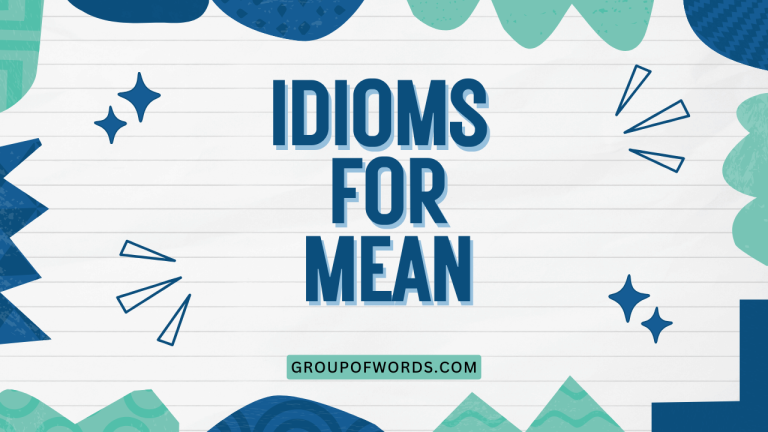Home Sweet Home: Mastering Idioms for Describing Your Abode
Understanding idioms related to “home” significantly enhances your English language skills. These expressions go beyond literal meanings, adding color and depth to your conversations and writing.
By learning these idioms, you’ll not only improve your comprehension but also gain the ability to express yourself more creatively and authentically. This article is designed for English language learners of all levels, from beginners to advanced speakers, who wish to enrich their vocabulary and master the nuances of everyday English.
This article delves into a variety of idioms about homes, houses, and related concepts. Each idiom is explained with clear definitions, illustrative examples, and practical usage tips.
By the end of this guide, you’ll be equipped to use these idioms confidently and appropriately in various contexts.
Table of Contents
- Introduction
- Definition of Idioms for Home
- Structural Breakdown
- Types and Categories of Idioms for Home
- Examples of Idioms for Home
- Usage Rules
- Common Mistakes
- Practice Exercises
- Advanced Topics
- FAQ
- Conclusion
Definition of Idioms for Home
An idiom is a phrase or expression whose meaning cannot be understood from the literal meanings of its individual words. Instead, the phrase has a figurative meaning that is known through common use.
Idioms related to “home” often describe feelings, situations, or characteristics associated with houses, families, and domestic life. These idioms add color, emotion, and cultural context to language.
The function of idioms is to provide a more expressive and nuanced way of communicating. They allow speakers to convey complex ideas or feelings in a concise and memorable manner.
In the context of “home,” idioms can express feelings of comfort, security, longing, or even dissatisfaction.
Idioms about home appear in various contexts, from casual conversations to formal writing. They are frequently used in literature, movies, and everyday speech to create vivid imagery and emotional resonance.
Understanding these idioms is essential for grasping the full meaning of English communication.
Structural Breakdown
The structure of idioms is often fixed, meaning that the words and their order cannot be changed without altering or losing the idiom’s meaning. For example, “make yourself at home” cannot be rearranged as “yourself make at home” and still retain its idiomatic meaning.
Understanding this fixed nature is crucial for using idioms correctly.
Idioms can consist of various grammatical structures, including:
- Phrasal Verbs: e.g., “move in,” “settle down”
- Noun Phrases: e.g., “home sweet home,” “a roof over your head”
- Clauses: e.g., “make yourself at home,” “home is where the heart is”
- Prepositional Phrases: e.g., “at home,” “away from home”
Many idioms also rely on metaphorical language, using comparisons or associations to convey their meaning. For instance, “a home away from home” uses the metaphor of a second home to describe a place where one feels comfortable and welcome.
Types and Categories of Idioms for Home
Idioms of Comfort and Security
These idioms often describe the feelings of safety, warmth, and contentment associated with being at home.
Idioms of Belonging and Family
These idioms relate to the bonds of family and the sense of belonging that comes from being part of a household.
Idioms of Ownership and Residence
These idioms focus on the physical aspects of home, such as owning property or having a place to live.
Idioms of Nostalgia and Longing
These idioms express feelings of homesickness or a desire to return to one’s home.
Idioms of Domestic Life
These idioms describe the everyday activities and experiences that take place within a home.
Examples of Idioms for Home
Idioms of Comfort and Security
The following table provides examples of idioms related to comfort and security, along with their meanings and example sentences.
| Idiom | Meaning | Example Sentence |
|---|---|---|
| Home sweet home | A phrase expressing happiness at being back home | After a long trip, it’s always good to be back home sweet home. |
| Make yourself at home | Feel comfortable and relaxed in someone’s home | Come in, make yourself at home, and I’ll get you a drink. |
| Settle down | To become calm and relaxed, especially after being agitated or excited | After a hectic day at work, I just want to settle down with a good book. |
| A home away from home | A place where you feel as comfortable as in your own home | The cozy café became a home away from home for the students. |
| Under one’s roof | Living in the same house | While she’s under my roof, she’ll follow my rules. |
| As safe as houses | Very safe and secure | Investing in government bonds is as safe as houses. |
| Anchor | Something that provides stability and security, like a home | For many, their family is their anchor in life. |
| Nest | A cozy and comfortable home | They worked hard to build a comfortable nest for their family. |
| Safe haven | A place where you are protected from danger or trouble | The library became her safe haven from the stresses of school. |
| Comfort zone | A situation where one feels safe and comfortable | Staying in your comfort zone won’t help you grow. |
| Feel at ease | To feel relaxed and comfortable | She tried to feel at ease despite the formal setting. |
| Like a fish in water | To feel completely comfortable and natural in a new environment | He took to the new job like a fish in water. |
| At peace | Feeling calm and without worry | She finally felt at peace after resolving the conflict. |
| Snug as a bug in a rug | Very comfortable and cozy | Wrapped in a warm blanket, she was snug as a bug in a rug. |
| Well-being | A state of being comfortable, healthy, or happy | Their priority was the well-being of their children. |
| On easy street | In a comfortable and prosperous situation | After winning the lottery, they were finally on easy street. |
| Home comforts | Things that make you feel comfortable at home | He missed the home comforts while traveling. |
| Couch potato | A person who spends a lot of time sitting or lying down, usually watching television | After work, he turns into a couch potato. |
| Creature comforts | Things that make life more pleasant, such as good food and comfortable surroundings | The hotel offered all the creature comforts one could desire. |
| Nest egg | A sum of money saved for the future | They had a nest egg to fall back on in retirement. |
| Home is where the heart is | Your true home is wherever you feel most happy and comfortable | Even though he traveled the world, he believed that home is where the heart is. |
| A place to hang your hat | A place to live, even if it’s temporary | All he wanted was a place to hang his hat after years of traveling. |
| Come home to roost | If something bad that you have done comes home to roost, it has unpleasant effects on you | His earlier mistakes came home to roost when he was denied the promotion. |
Idioms of Belonging and Family
The following table showcases idioms related to belonging and family, with explanations and examples.
| Idiom | Meaning | Example Sentence |
|---|---|---|
| Family ties | The bonds and relationships between family members | Despite the distance, their family ties remained strong. |
| Run in the family | A characteristic or trait that is common among family members | A talent for music seems to run in the family. |
| Like father, like son | Sons tend to behave similarly to their fathers | He’s a skilled carpenter, like father, like son. |
| Blood is thicker than water | Family relationships are stronger than relationships with others | In times of trouble, remember that blood is thicker than water. |
| Home is where the heart is | Your true home is wherever you feel most happy and comfortable | Even though he traveled the world, he believed that home is where the heart is. |
| Bring home the bacon | To earn a living; to be the breadwinner | She works hard to bring home the bacon for her family. |
| The apple doesn’t fall far from the tree | Children tend to resemble their parents in character | She’s a talented artist, the apple doesn’t fall far from the tree. |
| Wear the pants in the family | To be the dominant or decision-making member of the family | Everyone knows that she wears the pants in the family. |
| Birds of a feather flock together | People who are similar tend to associate with each other | It’s no surprise they became friends; birds of a feather flock together. |
| In-laws | Relatives by marriage | She gets along well with her in-laws. |
| Extended family | Family members beyond the immediate family, such as grandparents, aunts, and uncles | They spent the holidays with their extended family. |
| Immediate family | A person’s closest relatives, such as parents, siblings, and children | Only immediate family attended the small wedding. |
| Like two peas in a pod | Very similar or close to each other | The twins are like two peas in a pod. |
| A chip off the old block | Someone who is similar to their parent in character or behavior | He’s a chip off the old block, just like his father. |
| Keep it in the family | To keep something private within the family | They decided to keep it in the family and not involve outsiders. |
| The black sheep of the family | A member of the family who is considered different or a disgrace | He was always considered the black sheep of the family. |
| Put down roots | To settle down and make a home | They decided to put down roots in the small town. |
| A family man | A man who is devoted to his family | He’s a true family man, always putting his children first. |
| Love nest | A home, apartment, or other place where a couple lives together, especially when they are newly married or in love | They decorated their first apartment as a cozy love nest. |
| Homebody | A person who prefers to stay at home | She’s a bit of a homebody and enjoys quiet evenings. |
| Rule the roost | To be in charge; to be the boss, especially at home. | She rules the roost in her household. |
Idioms of Ownership and Residence
This table includes idioms related to owning a home or having a place to live.
| Idiom | Meaning | Example Sentence |
|---|---|---|
| A roof over your head | Having a place to live | All he wanted was a roof over his head and food on the table. |
| Put down roots | To settle down and make a home | They decided to put down roots in the countryside. |
| Move in | To start living in a new home | They’re planning to move in next month. |
| Fixer-upper | A house that needs repairs | They bought a fixer-upper and plan to renovate it. |
| Live in | To reside in a particular place, especially where one works | The nanny lives in with the family. |
| Housewarming party | A party to celebrate moving into a new home | They threw a housewarming party to celebrate their new place. |
| Pad | Informal term for a place to live | He invited her back to his pad after the concert. |
| Crash pad | A place to stay temporarily | His apartment served as a crash pad for his friends. |
| Squatter | Someone who lives in a building or land without permission | The abandoned building was occupied by squatters. |
| Tenant | Someone who rents a property from a landlord | The tenant paid the rent on time each month. |
| Landlord | A person who owns property and rents it out to others | The landlord was responsible for the building’s maintenance. |
| Mortgage | A loan used to purchase property | They took out a mortgage to buy their first home. |
| Real estate | Property consisting of land and buildings | Investing in real estate can be a good long-term strategy. |
| Move up | To move to a better or more expensive home | They decided to move up to a larger house as their family grew. |
| Downsize | To move to a smaller home, often after retirement | They decided to downsize after the children moved out. |
| Property ladder | The idea that people start with a small property and gradually buy more expensive ones | Getting on the property ladder is challenging for young people today. |
| Estate | Extensive area of land in the country, usually with a large house | They lived on a large estate with acres of gardens. |
| Dwelling | A house, apartment, or other place of residence | Their dwelling was a cozy cottage in the woods. |
| Habitat | The natural home or environment of an animal, plant, or other organism | The conservationists worked to protect the animal’s natural habitat. |
| Abode | A place of residence; a home | Welcome to my humble abode. |
| Nest egg | A sum of money saved for the future | They used their nest egg to buy their first home. |
| Live from hand to mouth | To have only enough money to live on | They live from hand to mouth, barely making ends meet. |
| Keep the wolf from the door | To have enough money to avert hunger or starvation | He worked hard to keep the wolf from the door. |
Idioms of Nostalgia and Longing
The following table lists idioms expressing nostalgia or longing for home.
| Idiom | Meaning | Example Sentence |
|---|---|---|
| Homesick | Feeling sad because you are away from home | She felt homesick during her first week at college. |
| Long for home | To have a strong desire to return to your home | He longed for home during his deployment overseas. |
| Yearn for home | To have a deep and persistent desire to return to your home | After years of traveling, she yearned for home. |
| Take me home | A plea to return to a place of comfort and familiarity | This song always makes me want to say, “Take me home.” |
| Old stomping ground | A place where one used to spend a lot of time | He revisited his old stomping ground after many years. |
| Good old days | A past time that is remembered fondly | They often reminisced about the good old days. |
| Rose-tinted glasses | To remember the past as better than it was | He tends to look at the past through rose-tinted glasses. |
| Back to square one | To return to the beginning after a failure | After the project failed, they were back to square one. |
| Wishful thinking | The conviction that something will occur or be true, even though there is no rational basis for this belief | Hoping that the problem will disappear on its own is just wishful thinking. |
| Nostalgia | A sentimental longing or wistful affection for the past, typically for a period or place with happy personal associations | Hearing that song filled him with nostalgia for his childhood. |
| Fond memories | Pleasant recollections of past events or experiences | She had many fond memories of her grandmother’s house. |
| Reminisce | To indulge in enjoyable recollection of past events | They often reminisce about their college days. |
| Those were the days | An expression used to fondly remember a past time | “Those were the days,” he said, looking at old photos. |
| The way we were | A nostalgic reference to a past relationship or situation | They talked about the way we were before things changed. |
| Golden age | An idyllic period of prosperity, peace, and happiness | Many consider the 1950s to be a golden age. |
| Long-lost | Something that has been lost for a long time and is now found or remembered | He rediscovered a long-lost photo album. |
| Take a trip down memory lane | To reminisce about past events or experiences | Let’s take a trip down memory lane and look at old pictures. |
| Old haunts | Places that one used to frequent regularly in the past | He revisited his old haunts when he returned to his hometown. |
| Back in the day | In the past | Back in the day, things were much simpler. |
| Those were different times | An expression indicating that the past was significantly different from the present | Those were different times; people didn’t have the same technology. |
| The good old days | A past time that is remembered fondly | They often reminisced about the good old days of their youth. |
| A blast from the past | Something that reminds you of the past | Seeing her after all these years was a real blast from the past. |
Idioms of Domestic Life
This table features idioms about everyday activities within a home.
| Idiom | Meaning | Example Sentence |
|---|---|---|
| Home is where you hang your hat | Home is wherever you feel comfortable | For a nomad, home is where you hang your hat. |
| Keep house | To take care of a home | She keeps house while her husband works. |
| Spring cleaning | A thorough cleaning of a house in the springtime | It’s time for spring cleaning; the house is a mess. |
| Home cooking | Food prepared at home | There’s nothing like home cooking. |
| Domestic bliss | A state of happiness and contentment in family life | They seemed to be living in domestic bliss. |
| A clean sweep | A thorough cleaning or removal of something | They did a clean sweep of the attic. |
| Dust bunnies | Clumps of dust and dirt that gather in corners | She found dust bunnies under the bed. |
| Home-style | Prepared in a simple, traditional way | The restaurant served home-style meals. |
| Do the dishes | To wash the dishes after a meal | It’s your turn to do the dishes tonight. |
| Do the laundry | To wash clothes | I need to do the laundry this weekend. |
| Make the bed | To arrange the sheets and blankets neatly on a bed | Remember to make the bed before you leave. |
| Tidy up | To make a place neater and more organized | Please tidy up your room. |
| Spick and span | Neat, clean, and well-organized | The house was always spick and span. |
| Home improvement | Making repairs or upgrades to a home | They spent the summer on home improvement projects. |
| Home economics | The study of cooking, cleaning, and other household skills | She took a class in home economics. |
| Behind closed doors | In private; not in public | The argument happened behind closed doors. |
| Creature comforts | Things that make life more pleasant, such as good food and comfortable surroundings | The hotel offered all the creature comforts one could desire. |
| Happy as Larry | Very happy and content | He was happy as Larry in his new home. |
| Home bird | A person who enjoys being at home | She’s a bit of a home bird and prefers staying in. |
| Henpecked | (of a man) constantly criticized and told what to do by his wife | He was a henpecked husband who always obeyed his wife. |
| Keep the home fires burning | To maintain a home or family while someone is away | She kept the home fires burning while he was serving overseas. |
| A man’s home is his castle | A person’s home is their sanctuary and they have the right to do as they please there | As the saying goes, a man’s home is his castle. |
Usage Rules
Using idioms correctly requires understanding their specific meanings and contexts. Here are some important rules to keep in mind:
- Context is Key: Always consider the context of the conversation or writing. Idioms can be inappropriate in formal settings or when communicating with someone unfamiliar with colloquial language.
- Fixed Structure: Do not change the word order or wording of an idiom. Altering the structure can change the meaning or make the idiom nonsensical.
- Audience Awareness: Be mindful of your audience. Some idioms may be culturally specific or less familiar to non-native speakers.
- Appropriate Tone: Use idioms that match the tone of your communication. Avoid using overly casual or humorous idioms in serious or formal contexts.
- Avoid Overuse: While idioms can enrich your language, overuse can make your speech sound unnatural or contrived.
Common Mistakes
One common mistake is taking idioms literally. For example, misunderstanding “a roof over your head” to mean only the physical structure rather than the security of having a place to live.
Another error is altering the words of an idiom, which can change its meaning or make it incomprehensible.
Here are some examples of common mistakes and their corrections:
| Incorrect | Correct | Explanation |
|---|---|---|
| Make you home at yourself. | Make yourself at home. | The correct reflexive pronoun is “yourself.” |
| Blood is thicker than water, but friends are forever. | Blood is thicker than water. | The idiom stands alone; the addition changes its meaning. |
| He is under his parents roof now. | He is under his parents’ roof now. | Possessive form requires an apostrophe. |
| She said “house sweet house” after the trip. | She said “home sweet home” after the trip. | The idiom is “home sweet home,” not “house sweet house.” |
| They moved at the new house. | They moved into the new house. | The correct preposition is “into.” |
| He loves his home cook. | He loves home cooking. | “Home cooking” is the correct idiom. |
| She has nostalgia about her home. | She feels homesick. | “Homesick” is the appropriate idiom for feeling sad about being away from home. |
| He is putting roots down here. | He is putting down roots here. | The correct word order is “putting down roots.” |
| She likes to do house. | She likes to keep house. | The correct idiom is “keep house.” |
| He is a potato couch. | He is a couch potato. | The correct order is “couch potato.” |
Practice Exercises
Exercise 1: Fill in the Blanks
Complete the following sentences with the correct idiom.
| Question | Answer |
|---|---|
| 1. After a long day, there’s nothing like being back ____________. | home sweet home |
| 2. Please, ____________ and make yourself comfortable. | make yourself at home |
| 3. She felt ____________ during her first week away at camp. | homesick |
| 4. They worked hard to ____________ for their family. | bring home the bacon |
| 5. He decided to ____________ in the small town where he grew up. | put down roots |
| 6. All he wanted was ____________ and a warm meal. | a roof over his head |
| 7. After years of traveling, he ____________ for the comfort of his own bed. | longed for home |
| 8. She’s a real ____________ and prefers staying in on weekends. | homebody |
| 9. Their new apartment is like ____________ for the students. | a home away from home |
| 10. They renovated a ____________ and turned it into their dream home. | fixer-upper |
Exercise 2: Multiple Choice
Choose the best idiom to complete each sentence.
| Question | Options | Answer |
|---|---|---|
| 1. He’s always been a ____________, preferring to spend his evenings at home. | a) house cat b) home bird c) roof rat d) family dog | b) home bird |
| 2. It’s time for ____________; the house is a complete mess! | a) summer cleaning b) autumn tidy c) spring cleaning d) winter wash | c) spring cleaning |
| 3. She always makes sure to ____________ before leaving for work. | a) do the dishes b) make the bed c) sweep the floor d) wash the windows | b) make the bed |
| 4. The children have to follow the rules while they’re ____________. | a) under my hat b) under my shoe c) under my roof d) under my car | c) under my roof |
| 5. After winning the lottery, they were finally ____________. | a) on easy street b) on hard road c) on bumpy lane d) on simple path | a) on easy street |
| 6. Although they argued, ____________ and they always reconciled. | a) blood is thicker than oil b) blood is thicker than juice c) blood is thicker than soda d) blood is thicker than water | d) blood is thicker than water |
| 7. She works hard to ____________ so her children can have a good life. | a) bring home the beef b) bring home the bacon c) bring home the lettuce d) bring home the steak | b) bring home the bacon |
| 8. He’s a ____________, always putting his family first. | a) family dog b) family man c) family car d) family tree | b) family man |
| 9. They decided to ____________ and move to a smaller house after retirement. | a) upsize b) midsize c) downsize d) supersize | c) downsize |
| 10. They threw a ____________ to celebrate moving into their new home. | a) welcome party b) move-in bash c) housewarming party d) open house | c) housewarming party |
Advanced Topics
For advanced learners, exploring the etymology and cultural context of idioms can provide a deeper understanding of their meanings and usage. Researching the origins of idioms like “a roof over your head” or “home sweet home” reveals fascinating insights into the history and values of English-speaking cultures.
<
p>Additionally, consider the variations and regional differences in idiom usage. Some idioms may be more common in certain countries or regions, and understanding these variations can help you communicate more effectively with diverse audiences. Analyzing literary works and films can also provide valuable insights into how idioms are used in context.
FAQ
Q1: Why are idioms important in English?
Idioms add color and depth to the English language. They allow speakers to express complex ideas and emotions in a concise and memorable way, making communication more engaging and nuanced.
Q2: How can I learn idioms effectively?
Learn idioms through context, using flashcards, reading extensively, and practicing with native speakers. Pay attention to how idioms are used in real-life conversations and media.
Q3: Are idioms the same in all English-speaking countries?
No, idioms can vary significantly between different English-speaking countries. Some idioms are specific to certain regions or cultures, so it’s important to be aware of these variations.
Q4: Can I create my own idioms?
While it’s possible to create new expressions, idioms are generally established through common usage over time. New phrases may be understood, but they are not technically idioms until they gain widespread acceptance.
Q5: How do I avoid misusing idioms?
Pay close attention to the context and meaning of idioms. Practice using them in different situations and get feedback from native speakers.
Avoid taking idioms literally, and be mindful of your audience.
Q6: What are some resources for learning more idioms?
There are many online dictionaries, language learning apps, and textbooks that focus on idioms. Additionally, reading English literature and watching English-language movies and TV shows can expose you to a wide range of idioms in context.
Q7: How can understanding the etymology of idioms help?
Understanding the origins of idioms provides deeper insight into their meanings and cultural significance. It can also make idioms more memorable and easier to use correctly.
Q8: Is it okay to use idioms in formal writing?
Use idioms sparingly in formal writing. While they can add color, they may also make your writing sound less professional.
Choose idioms that are widely understood and appropriate for the tone of your writing.
Q9: How do I explain an idiom to someone who doesn’t understand it?
Explain the meaning of the idiom in simple terms, provide an example sentence, and relate it to a similar concept that the person may already understand. Avoid overcomplicating the explanation.
Q10: Why do some idioms seem to make no sense literally?
Idioms often have historical or cultural origins that are not immediately obvious. Their meanings have evolved over time, and they are understood through common usage rather than literal interpretation.
Conclusion
Mastering idioms related to “home” can significantly enhance your English language skills, allowing you to express yourself more vividly and connect with native speakers on a deeper level. By understanding the definitions, structures, and usage rules of these idioms, you can confidently incorporate them into your everyday conversations and writing.
Remember to practice regularly and be mindful of the context and audience to avoid common mistakes. With dedication and persistence, you’ll be well on your way to mastering these colorful expressions and making your English sound more natural and expressive.
So, go ahead, make yourself at home with these idioms and enrich your language skills!






